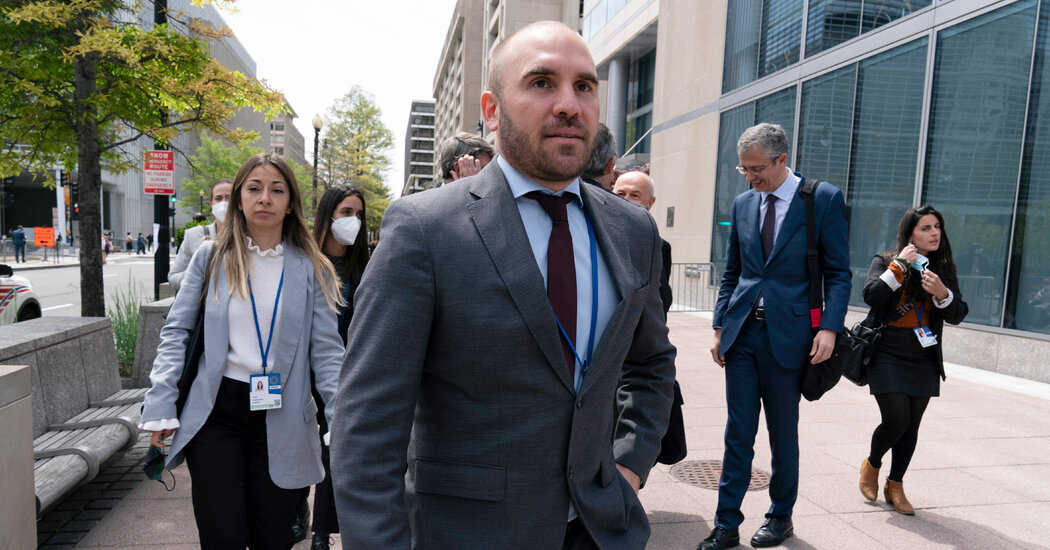BUENOS AIRES (Reuters) – Argentina’s economy minister abruptly resigned on Saturday night, a move that threatens to further destabilize an economy already hit by skyrocketing inflation, rising energy costs and mounting fears of possible new defaults.
The minister, Martin Guzmán, was the architect of the South American country’s recent deal with the International Monetary Fund to restructure $44 billion in debt.
Tensions within the government have boiled over over how to handle the economic crisis. Mr Guzmán, a relatively moderate, clashed with the more militant wing of the ruling Peronist coalition, led by Vice President Cristina Fernández de Kirchner. She had publicly criticized the IMF deal and called for more government spending and more government intervention to fight inflation.
Mr Guzmán’s departure was the most notable resignation since President Alberto Fernández took office in late 2019. Much of Mr Guzmán’s team at the Ministry of Economy also resigned.
“Minister Guzmán’s resignation really exposes the internal rift in the government,” said Eugenio Marí, chief economist at Fundación Libertad y Progreso, a public policy research center, adding that Mr Guzmán is struggling despite his efforts.
“From the economic side,” said Mr. Marí, “it amplifies the dynamism of uncertainty Argentina was already in.”
Pressure on the country’s currency, the Argentine peso, is mounting, which is shielded by strict capital controls. Mr Guzmán also oversaw tax policies for grains and energy. Argentina is one of the world’s largest grain producers.
Inflation is rising above 60 percent and is expected to rise further, while high energy import costs have limited the country’s ability to increase depleted foreign exchange reserves. Argentina’s government bonds have fallen in the direction of 20 cents against the dollar.
Mr Guzmán was due to travel to France this week for talks on restructuring about $2 billion in debt with the Paris Club of sovereign lenders. Restructuring that debt was seen as crucial to reopening Argentina’s access to the foreign direct investment needed for infrastructure and energy.
Daniel Marx, Argentina’s former finance minister and debt negotiator, said it had become untenable for Mr Guzmán to continue in office amid strong opposition within the government. The big question now is who will replace him.
“I think it’s important to see how the void is being filled,” said Mr. Marx. “Not only the person, but also the direction of economic policy to get out of all the skepticism and problems that have dragged on for quite some time.”
There was no news of a successor on Sunday morning and President Fernández had not yet publicly addressed the departure, suggesting the government had been caught off guard.
Some investors were concerned about the impact of the departure on the country’s ability to meet its obligations to the IMF, including targets for inflation, reserve levels and the budget balance – all already under pressure.
“This is not good and confirms that there is a political problem,” said Maria Castiglioni, economist at C&T Asesores Económicos, adding that it raised questions about whether the government would be able to take the necessary measures to deal with the crisis. .
Horacio Larghi, economist and director of the consultancy Invenomica, said the most important thing was whether the new economy minister was authorized to act.
“As for who replaces him, the name doesn’t really matter,” said Mr. Larghi. “It’s about whether the person has the power to do something.”

